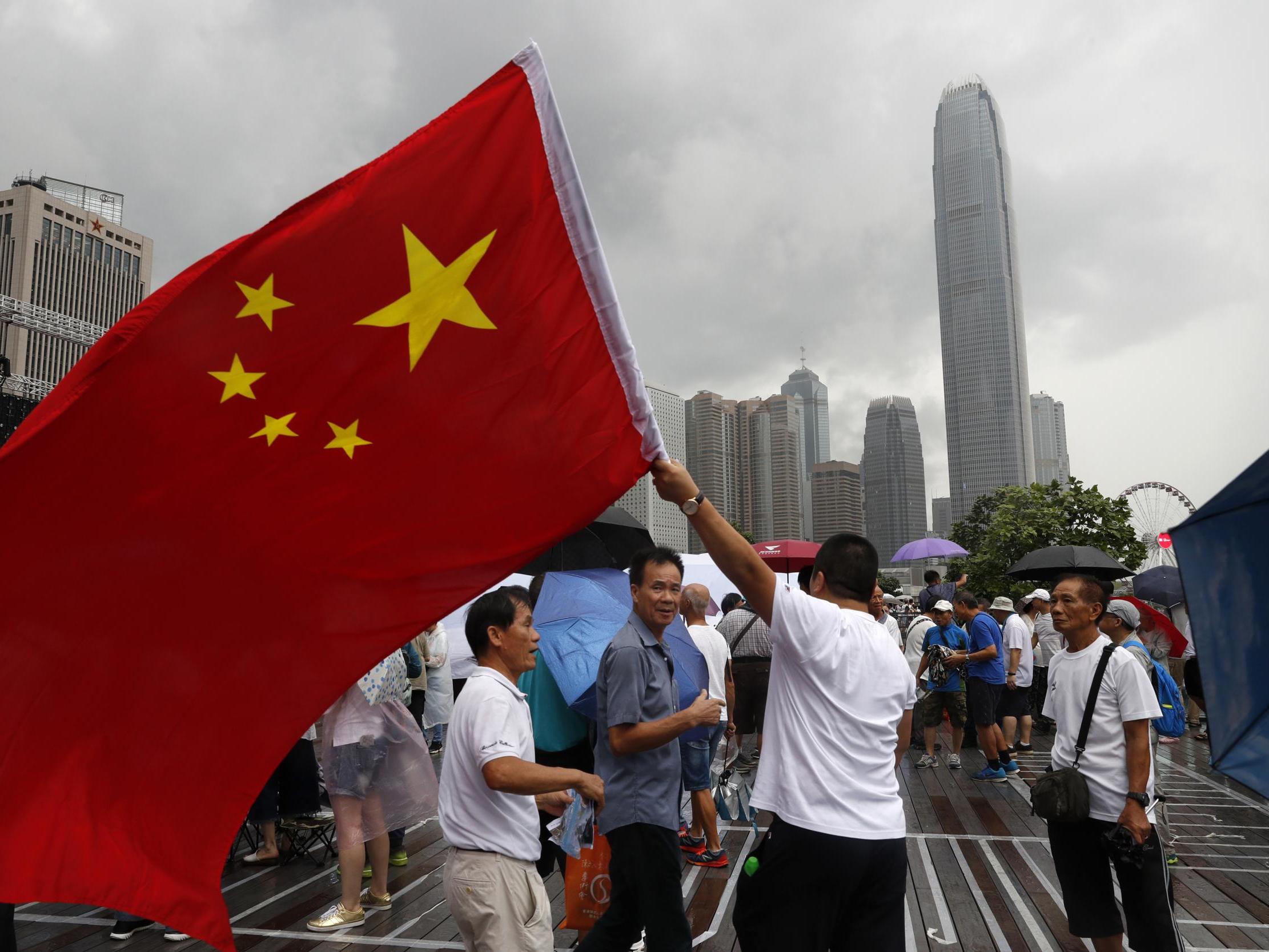Hong Kong: Explosives seized by police ahead of weekend of protests
Pro-China demonstrators rally today, while pro-democracy protesters march on Sunday

Your support helps us to tell the story
From reproductive rights to climate change to Big Tech, The Independent is on the ground when the story is developing. Whether it's investigating the financials of Elon Musk's pro-Trump PAC or producing our latest documentary, 'The A Word', which shines a light on the American women fighting for reproductive rights, we know how important it is to parse out the facts from the messaging.
At such a critical moment in US history, we need reporters on the ground. Your donation allows us to keep sending journalists to speak to both sides of the story.
The Independent is trusted by Americans across the entire political spectrum. And unlike many other quality news outlets, we choose not to lock Americans out of our reporting and analysis with paywalls. We believe quality journalism should be available to everyone, paid for by those who can afford it.
Your support makes all the difference.Police in Hong Kong discovered a stash of powerful homemade explosives as the city prepared for another major pro-democracy protest on Sunday, and counter-demonstrators rallied on Saturday.
Police said they found about 2 kilograms (4.4 pounds) of TATP and arrested a man in a raid on a commercial building late Friday night.
TATP, or tri-acetone tri-peroxide, has been used in terrorist attacks worldwide.
The finding comes as tension between pro-democracy activists, counter-demonstrators and police forces continues to escalate over the controversial “extradition bill” in Hong Kong, but a police spokesperson said no link has been established and the investigation is ongoing.
In recent weeks, millions have taken to the streets to protest against the bill, which would have allowed people in Hong Kong to face trial in mainland China.
Tens of thousands filled one of the city’s parks on Saturday to express support for police forces, who have been accused of using rough tactics on protesters, ahead of another pro-democracy march scheduled for Sunday.
“We are experiencing the most serious revolution after Hong Kong's handover," said former Legislative Council president, Jasper Tsang.
“We are also experiencing the most serious challenge for ‘One Country, Two Systems’,” he added, referring to the system under which Hong Kong is governed since its handover from British to Chinese rule in 1997.
Under the system, Hong Kong was allowed to retain for 50 years extensive freedoms not enjoyed in China, including an independent judiciary and the right to protest.
Protesters were mostly middle-aged older people dressed in white – in contrast with anti-extradition bill protesters, who usually wear black and don protective gear against police pepper spray and batons.
They gathered in the city’s Tamar Park, next to the Legislative Council which protesters stormed and raided on 1 July, and chanted “Support Hong Kong Police” and “Hong Kong Cheer Up”.
Some waved Chinese flags, and a giant screen behind the stage for speakers read “Safeguard Hong Kong.”
Tsol Pui, 85, president of Hong Kong Veterans’ Home, said: “Violence is intolerant. We are distressed about our home and we should absolutely stand out to support Hong Kong police, to maintain stability and rule of law in society.”
Tang King Shing, Hong Kong’s former Commissioner of Police, said: “Police, we support you. You should not have suffered from the disaster made by those thugs... We Hong Kong people come out to safeguard Hong Kong.”
Organizers said 316,000 people took part in the demonstration, while police put the turnout at 103,000.
On Sunday, pro-democracy protesters will take to the streets again.
Earlier marches have been largely peaceful, but in a recurring pattern, police have clashed with groups of mostly young protesters who use barricades to try to take over streets or refuse to disperse after the main demonstration is over.
Last weekend two initially peaceful protests degenerated into running skirmishes between baton-wielding riot police and activists, resulting in scores of injuries and more than 40 arrests.
Those fights followed larger outbreaks of violence in central Hong Kong last month, when police forced back activists with tear gas, rubber bullets and bean-bag rounds.
Activists and human rights groups have called for an independent investigation into what they describe as excessive use of force by police.
On Monday 1 July, the 22nd anniversary of the city’s handover from the UK to China, hundreds of protesters stormed the legislative council building and tore down Chinese flags.
For many Hong Kong residents, the extradition bill is the latest step in a relentless march towards mainland Chinese control of the city.
Opponents of the extradition bill fear it would leave the people of Hong Kong at the mercy of Chinese courts, where human rights are not guaranteed, and have voiced concerns over the city’s rule of law.
Hong Kong’s embattled leader Carrie Lam has apologised for the turmoil the extradition bill has caused and declared it “dead”.
But now opponents demand the full withdrawal of the bill, the withdrawal of the word “riot” from the government’s description of demonstration and the release of those arrested.
Protesters are also advancing demands for greatest democracy and even to curb the number of mainland Chinese tourists to Hong Kong.
Additional reporting by Associated Press and Reuters
Join our commenting forum
Join thought-provoking conversations, follow other Independent readers and see their replies
Comments